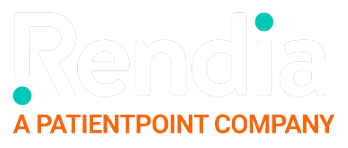Use your strengths, improve your weaknesses, and beat burnout using the test results
In a previous post, we discussed the Enneagram, a popular self-assessment tool along the lines of the Myers-Briggs test. By answering questions related to your behavior in certain situations and the motivations behind it, the Enneagram classifies you as one of nine “types.” Check out our last post or The Enneagram Institute web site for descriptions of each type.
The goal is to help you understand yourself better and improve your relationships and interactions with other people in your life, including colleagues and employees. Read on to find out how the Enneagram can help you be a more effective manager.
Pros and cons of common doctor ‘types’
The Enneagram identifies your most dominant personality type(s), revealing both the pros and cons of each. It’s common for doctors to be classified as Type 1—the rational, idealistic type, tending towards logical thinking and perfectionism. Additionally, many doctors are Type 2—“The Helper”—empathetic, perceptive, yet possibly veering into possessiveness and self-deception.
However, it’s important to remember that you are not your type, says Enneagram coach Lauren Gray. We all have strengths and weaknesses, and we can all work to integrate some strengths of the other types so that our type is more balanced and we can be the most effective, she explains.
Type 1 leaders have high productivity and standards, but may struggle to delegate tasks to others. Type 2 leaders are helpful and empathetic, but may sacrifice their own needs.
For example, Certified Professional Leadership Coach and Enneagram expert Catherine Hayes explains in a Forbes article, “Type 1 leaders get the job done, allowing little to no room for error.” Their challenge, however, is trusting others to meet their high standards. Hayes’ recommendation to Type 1 leaders who struggle to delegate is to mentor others. “Trust their abilities, and value their input, relieving yourself of the burden of doing it all yourself.”
[bctt tweet=”Type 1 leaders get the job done, allowing little to no room for error, says Catherine Hayes. Their challenge, however, is trusting others to meet their high standards.” username=”goRendia”]
For more on this topic, see How Mentoring Can Support All Doctors
For Type 2 leaders to be most effective, they may need to recognize and rein in their need to be seen as helpful, according to Hayes. “Their people-pleasing behaviors such as flattery and being overly generous can often get in the way of them taking a firm stand when it’s needed. To be an effective and truly selfless leader, let go of the need to take care of everyone else, and make your own needs an equal priority.”
Neglecting your own needs can also lead to burnout, an epidemic in health care. For tips on self-care and minimizing daily stressors, see our recent post, Stress Management for Doctors.
How the Enneagram can help fight burnout
Physician career coach Heather Fork, M.D., uses the Enneagram as a tool to help her doctor clients better understand their risk factors for burnout based on personality type and adopt healthy coping strategies.
For instance, Type 1 doctors have high standards for their work, including documentation, but this can lead to being obsessive. Dr. Fork suggests, “If charting is taking an inordinate amount of time, do a trial period of more succinct notes for two weeks. You can always go back to the longer notes, but perhaps shorter notes (with even a few typos) may be acceptable.” A challenge for Type 1 doctors is to tone down their strong inner critic, which can be very hard on themselves, and others.
Type 3, “The Achiever,” is a common “wing,” or second side of many doctors’ personalities. (See our previous post for a longer discussion of “wings.”) Type 3 is characterized as being success-oriented, driven, and image-conscious, but can be workaholics who look to achievements for their self-worth, at the expense of their relationships. To counteract these risks for burnout, Dr. Fork advises Type 3 doctors to fully accept themselves and let go of comparisons to others. “Finding your own authenticity and being comfortable with all aspects of yourself, including your appearance, will create more inner peace than any outer achievement,” she writes.
Why EQ is more important for leaders than IQ
Whether you choose to use the Enneagram or another tool, gaining a better understanding of your own personality, behaviors, motivations, and triggers is a valuable exercise for any leader, in business, in medicine, and in life. And it also helps you to recognize how you are perceived by others, such as your employees.
For business leaders, emotional intelligence (EQ) is important since it helps you to understand your employees and keep them engaged.
Evidence is showing that for business leaders, emotional intelligence (EQ) is even more important than IQ. “Assessing the emotional element of a situation, whether positive or negative, will help you keep employees engaged and enable you to better understand their mindset and behavior,” wrote Steve Goldstein, president of Engaged Leadership Advisors, in Inc. magazine.
He says EQ is “a powerful tool” for leaders. “Their ability to read employees’ emotional state, reactions, and stress levels helps [them] manage their teams with a strategy and approach that is both thoughtful and compassionate, but also direct and with trackable outcomes.”
For a related post on the importance of effective interactions with employees and colleagues, see How to Improve Communication in All Areas of Your Practice.

